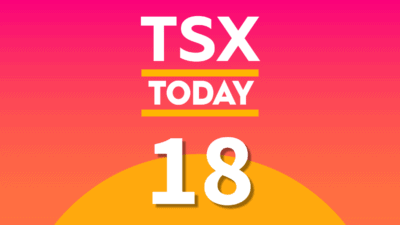Canadian voters are scheduled to go to the polls on October 21 to elect a new prime minister.
This is shaping up to be one of the more interesting federal elections in recent memory. Will Justin Trudeau’s Liberal party be able to shake off the many controversies plaguing the current Prime Minister?
Will Conservative Party leader Andrew Scheer be able to entice eastern voters with his pro-energy platform? How will other parties impact the election? Do they even have a chance?
As investors, we care about economic policies. We want to know how each party will impact our portfolios if they get a chance to govern. Let’s take a closer look at each major party’s election promises, focusing on the impact to your wallet.
Liberal
Trudeau’s Liberals continue to focus on improving the lives of middle-class Canadian families.
The main part of the Liberal tax cut plan is an increase to the personal exemption, the amount Canadians can earn before paying any income tax.
The current exemption is just under $12,000 today; Trudeau’s plan would increase this amount to $15,000, providing the recipient earns under $147,000 per year. This would save the average family approximately $300 per year.
Digging a little deeper into the Liberal economic platform, we see one item aimed squarely at high earners. The Liberals plan to introduce a special 10% consumption tax on any luxury car, boat, or personal aircraft worth over $100,000. This alone should add approximately $500 million per year in tax revenue.
Finally, on the real estate front, the Liberals promise to implement a national tax on any vacant residential properties owned by non-Canadians. This is projected to generate some $200 million in annual revenue and lower prices in major cities.
Conservatives
Conservative leader Andrew Scheer has been consistent on one big promise. His party will do what it takes to get the Trans Mountain Pipeline expansion built, thus ensuring a new market for Albertan oil. We’ll likely see a nice pop in energy producer stocks if Scheer becomes the next Prime Minister.
The conservatives also have their own tax cut planned. Scheer’s plan will include a slow reduction in the lowest federal tax bracket, reducing the rate from 15% currently to 13.75% over four years. This will save the average single taxpayer $444 per year and a two-income couple nearly $900 per year.
Scheer’s tax cuts don’t stop there, however. He has also pledged to eliminate the controversial Carbon Tax, as well as introducing a new public transit tax credit.
From a personal finance perspective, Scheer’s plan to make housing more affordable is to scrap controversial stress tests that ensure Canadian borrowers can afford a higher mortgage rate. Critics argue that the move will make housing in major cities even more unaffordable.
NDP
Although it looks to be a two-party race at this point, investors shouldn’t count out the New Democratic Party.
If leader Jagmeet Singh is elected, the party plans to spend aggressively on a number of programs to improve the lives of middle-class Canadians. Prominent plans include a national pharmacare program, aggressive investments in infrastructure, and a focus on improving the climate crisis.
Unfortunately for investors in the upper tax brackets, these programs will be paid for with increased taxes. Suggested increases in the NDP platform include increasing the capital gains tax inclusion rate to 75%, increasing corporate taxes, and introducing a wealth tax on anyone worth more than $20 million.
Green Party
Led once again by leader Elizabeth May, the Green Party of Canada hopes to build on efforts from previous elections. Early polling looks good so far; the Greens are projected to get some 10% of the popular vote across Canada.
As you’d expect, the party is big on sustainable energy investment. A Green-controlled parliament would immediately pass laws that would reduce Canada’s carbon emissions with a goal to get the economy to net-zero emissions by 2050.
The Green Party would also take steps to keep oil in the ground, including the eventual winding down of oil sands operations by 2035. Finally, the Green Party would immediately cancel the Trans Mountain pipeline expansion project.
Naturally, this would impact Canadian energy stocks in a major way. Energy bulls don’t want to see the Green Party get any major traction in parliament.







